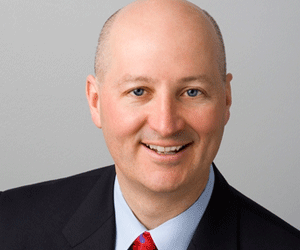
By GRANT SCHULTE , Associated Press
“Property tax relief has been a top priority in each of my budgets, and it will be my top priority in the upcoming budget,” Ricketts said. “State aid to K-12 schools is another important budget priority.”
It’s too early to know whether the governor and lawmakers will face the same revenue shortfalls that led them to cut their budget the last two years. But if tax collections improve, key lawmakers said they hope to replenish the state’s emergency cash reserve and restore funding to state agencies that lost funding.
“We do need to restore some of what we’ve taken from them,” said Sen. John Stinner of Gering, chairman of the budget-writing Appropriations Committee.
Nebraska’s cash reserve is projected to fall to $296 million by June 2019, down sharply from the $729 million stashed away in 2016. Lawmakers and Ricketts have tapped it repeatedly to balance the budget and pay for road and bridge projects. Ricketts said he’d like to see between $400 million and $500 million in the reserve.
Sen. Bob Krist, of Omaha, the Democratic candidate for governor, said he would take a collaborative approach if elected and work directly with lawmakers on his budget. Krist said he would increase state funding for the University of Nebraska and health care providers who serve people with developmental disabilities. He also promised a boost for K-12 public schools as a way to ease pressure on rising property taxes.
“You can’t solve the property tax issue without talking about proper funding for K-12 education,” said Krist, who leaves the Legislature in January because of term limits.
Stinner said he’s concerned that lingering problems in agriculture could hurt the state budget. Low commodity prices and rising farmland property taxes have squeezed profit margins for farmers, and Stinner said he’s also worried about the impact of President Donald Trump’s trade war with China.
“We are in an ag economy that I wouldn’t consider robust,” he said. “With prices down, I think you’re going to see farmers react very conservatively with their spending. That all cascades into the (state tax) receipts.”
State government tax collections were $18 million higher than expected so far in the current fiscal year, according to a report this month from the Nebraska Department of Revenue. The state has netted $702 million between July 1 and the end of August, which is 2.6 percent more than expected, based on the most recent available data.
Despite the uptick, Stinner said he’s expecting revenue to fall short again by 2020 based on state forecasts that predict a slowdown in the economy.
Another tight budget year could force lawmakers to either cut more or find new sources of revenue. Ricketts and Krist both said they wouldn’t raise tax rates, but senators have noted that the state will get a new revenue stream next year from online sales. The Department of Revenue is giving business until 2019 to start collecting online sales taxes within the state.
Sen. Kate Bolz, of Lincoln, said she was particularly concerned about funding for the University of Nebraska and health care providers who serve Medicaid patients, both of which saw cuts last year.
The university responded to its 1 percent cut by cutting two academic programs and eliminating 18 jobs. Medicaid service providers currently treat patients at less than the actual cost of their services, Bolz said.
Bolz said she also wanted to restore money to the cash reserve and invest in new voting equipment to replace Nebraska’s outdated technology. She said she’d like to see more funding for the state’s Office of Violence Prevention, which distributes law enforcement grants to thwart gang activity and other threats.
“The most important thing to be thinking about is what we need to do to maintain essential state services,” Bolz said. “It was prudent to put those (one-time) expenses on the back burner during tight budget times, but if we see an increase in revenue, we’ll need to take a look at those things.”
